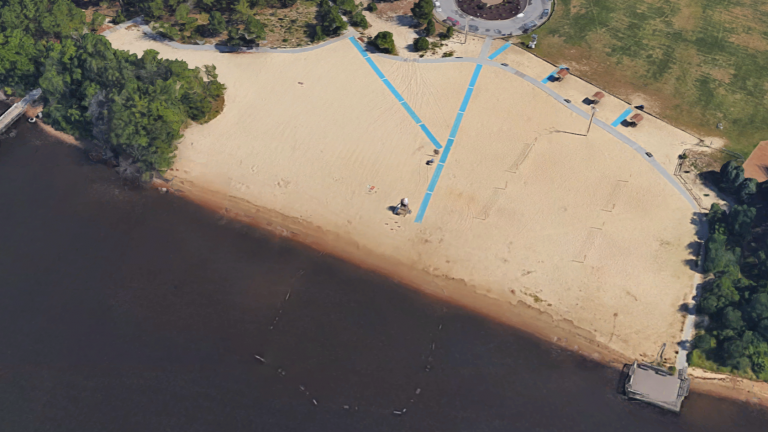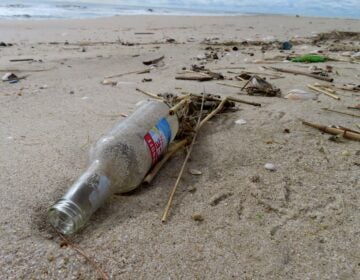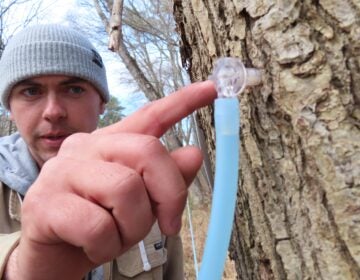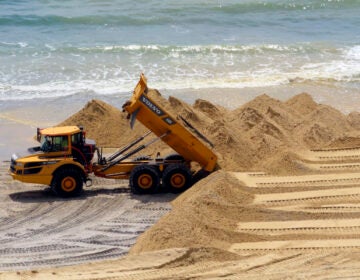Excessive fecal bacteria levels close 2 N.J. beaches
On the heels of swimming advisories issued for dozens of New Jersey beaches earlier this week, state officials have closed two beaches due to excessive fecal bacteria levels.

Windward Beach in Brick, N.J. (Google Maps)
On the heels of swimming advisories issued for dozens of New Jersey beaches earlier this week, state officials have closed two beaches due to excessive fecal bacteria levels.
Metedeconk River’s Windward Beach in Brick Township and East Beach Station Avenue in Pine Beach, both in Ocean County, are closed Thursday after two consecutive samples collected exceeded the state acceptable bacteria standard, according to the New Jersey Department of Environmental Protection’s njbeaches.org.
The standard for the acceptable level of enterococcus, a bacteria found in the intestines of warm-blooded animals that can cause urinary tract infections, bacteremia, bacterial endocarditis, diverticulitis, and meningitis, is 104 colonies per 100 ml of water. Windward Beach registered 635 colonies on Monday and 600 on Tuesday, while East Beach Station Avenue along the Toms River logged 170 on Monday and 440 on Tuesday. Monday’s sample at Windward Beach was more than six times the acceptable bacterial level.
The state tests water quality at 35 bay and 180 ocean locations weekly and issues advisories following unacceptable bacteria levels. Beaches are closed if two consecutive samples collected at a bathing beach exceed the state standard and remain in effect until subsequent sampling indicates bacteria levels are again below the standard.
In 2014, NJ Spotlight ranked Windward Beach as one of the ten worst New Jersey beaches for water pollution.
Earlier this week, swimming advisories were issued for 47 beaches due to unacceptable bacteria levels. All have been discontinued except for the two closed beaches.
Some waterways are typically susceptible to higher bacteria levels after rainfall and associated storm runoff.
WHYY is your source for fact-based, in-depth journalism and information. As a nonprofit organization, we rely on financial support from readers like you. Please give today.




